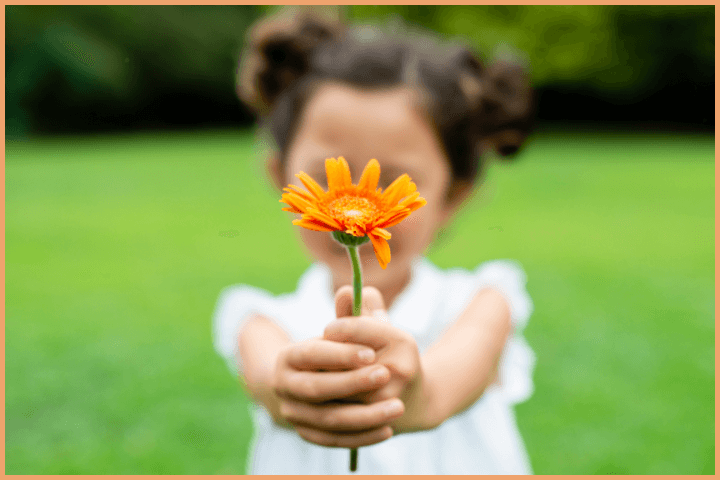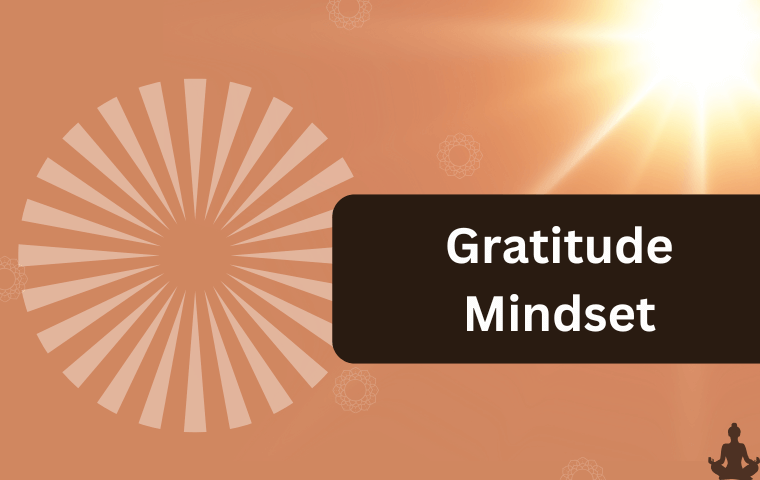A gratitude mindset is a powerful way of thinking that focuses on appreciating the good things in your life. By cultivating gratitude, you change your focus from what’s missing to what’s present, fostering increased happiness, contentment, and success. Here’s how a gratitude mindset can benefit you and steps to incorporate it into your daily life.
What is a Gratitude Mindset?

A gratitude mindset is the practice of intentionally focusing on the positive aspects of life. It involves recognizing and appreciating the blessings and opportunities around you, no matter how big or small. Rather than dwelling on what’s missing, you focus on what’s present and abundant. This shift in perspective promotes a positive attitude and reduces feelings of scarcity.
The more you practice gratitude, the more you begin to see life through an optimistic lens. You start to acknowledge the beauty in everyday moments, celebrate successes, and strengthen your emotional well-being. It’s a mindset that encourages you to live in the moment and appreciate the here and now.
Why is a Gratitude Mindset Important?
Boosts Positivity: Gratitude naturally redirects your thoughts toward the positive. The more you focus on what you have, the more you realize just how much there is to be thankful for. This creates a ripple effect of positivity in your life.

Improves Relationships: Gratitude has a profound impact on relationships. When you show appreciation to others, it strengthens your bond and creates a more loving, supportive environment. It builds trust, fosters connection, and increases mutual respect.
Increases Happiness: Numerous studies show that people who practice gratitude are happier. Gratitude reduces stress and anxiety, making it easier to find joy in everyday life. It also helps improve mental health by shifting your focus from negativity to positive experiences.
Promotes Emotional Resilience: When you practice gratitude, you develop resilience to face challenges. By recognizing what you’re thankful for, you gain perspective, which makes it easier to navigate difficult situations. It allows you to see obstacles as temporary and manageable.
Attracts More Abundance: A gratitude mindset opens the door to abundance. The more grateful you are, the more you attract positive opportunities into your life. Gratitude creates a sense of fulfillment, making you less likely to chase after what you don’t have and more likely to appreciate the blessings you already possess.
Improves Health: Gratitude doesn’t just benefit your emotional well-being it also has physical health benefits. People who practice gratitude regularly report lower levels of stress, better sleep, and improved heart health. It enhances overall well-being and promotes a healthier lifestyle.
How to Develop a Gratitude Mindset
Here are practical ways to cultivate a gratitude mindset in your life:
Recognize Your Progress
Celebrate your growth and progress, no matter how small. Acknowledge your achievements and recognize the effort you’ve put in. Reflecting on your journey reinforces your sense of accomplishment and helps you stay motivated.
Express Gratitude Daily

Make gratitude a daily habit. Each day, take a moment to write down three things you’re thankful for. It could be as simple as a pleasant conversation, a delicious meal, or a quiet moment of peace. This simple exercise will train your mind to focus on the good rather than the bad.
Start Your Day with Gratitude
How you begin your day determines the mood for the hours that follow. Begin each morning by expressing gratitude for something your health, your family, or the opportunities ahead. This positive start will help you feel grounded and prepared to tackle the day with a positive outlook.
Practice Mindfulness

To develop a gratitude mindset, be present in the moment. Mindfulness allows you to fully appreciate the small, everyday things that often go unnoticed. Mindfulness enables you to appreciate gratitude in every moment, whether it’s relishing a warm cup of coffee or taking in the natural beauty around you.
Focus on Abundance, Not Scarcity
Instead of focusing on what you don’t have, shift your attention to the abundance in your life. Think about the things that bring you joy, the people who support you, and the opportunities you’ve had. Focusing on abundance will help you develop a positive and empowered mindset.
Be Grateful for Challenges

It can be difficult, but being grateful for challenges can help you grow. When faced with adversity, look for lessons or personal growth opportunities in the situation. Gratitude for challenges promotes resilience and helps you develop a positive outlook even in tough times.
Show Appreciation to Others
A simple way to cultivate gratitude is by expressing it to those around you. Whether it’s thanking someone for their help, appreciating their presence in your life, or simply acknowledging their efforts, expressing gratitude helps build stronger, more meaningful relationships.
Gratitude Journaling

Writing in a gratitude journal is a meaningful way to deepen your gratitude practice. Write down three things you’re thankful for each day, and make it a part of your routine. Over time, you’ll notice how your perspective shifts, and you’ll become more attuned to the positive aspects of your life.
Shift Your Focus During Tough Times
During difficult moments, it can be easy to slip into negativity. But if you make a conscious effort to find something to be grateful for even in the midst of challenges, you’ll feel more empowered. Look for lessons, opportunities for growth, or even small moments of peace to ground yourself in gratitude.
Embracing a Life of Gratitude
Adopting a gratitude mindset can have a profound impact on your life. It shifts your perspective from what you lack to what you already have, promoting positivity, resilience, and well-being. By practicing gratitude daily, you create a cycle of appreciation that transforms your thoughts, actions, and relationships.
Start small, whether it’s through daily gratitude journaling, expressing appreciation to others, or simply focusing on the present moment. Over time, this practice will become second nature, and you’ll find that life feels more abundant, fulfilling, and joyful.

